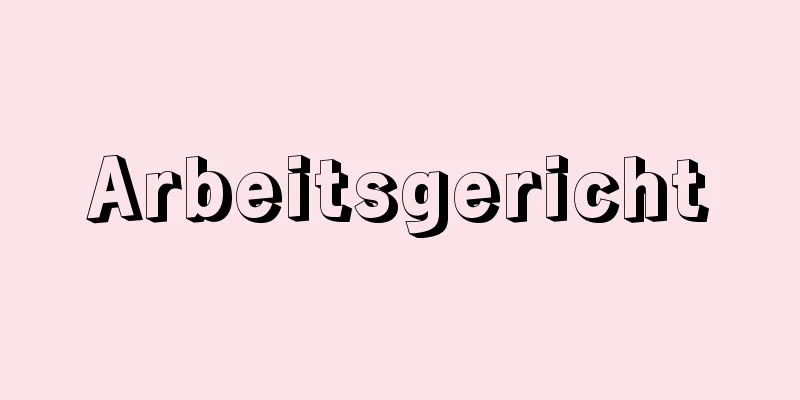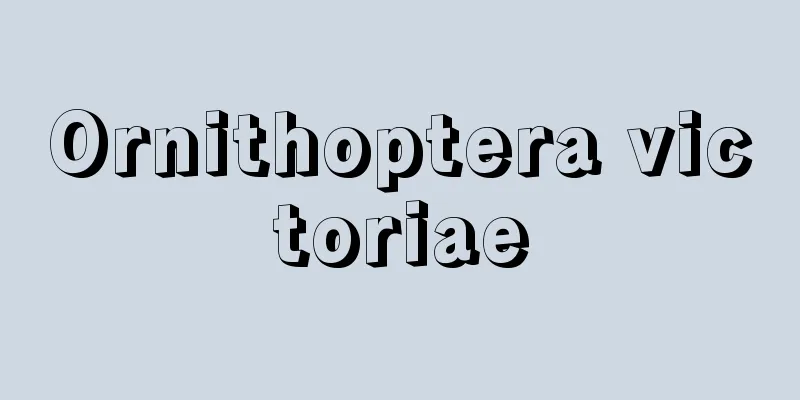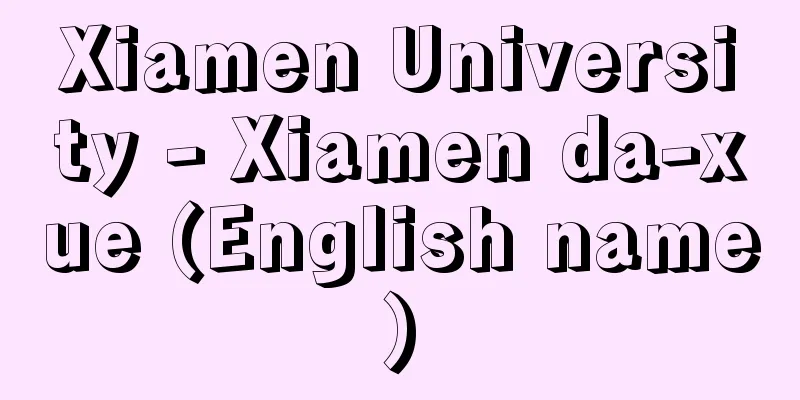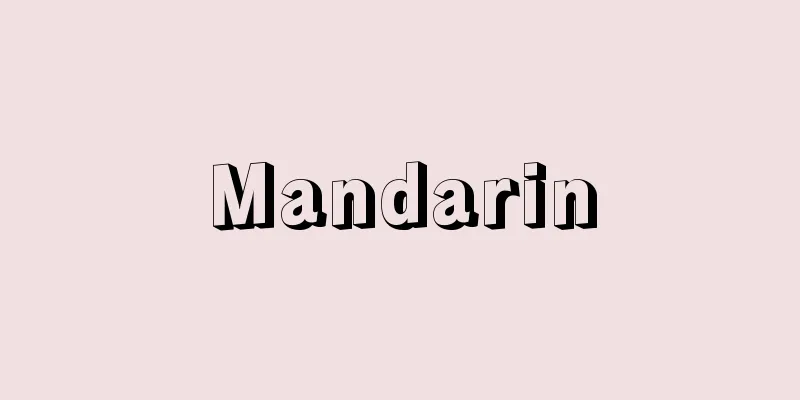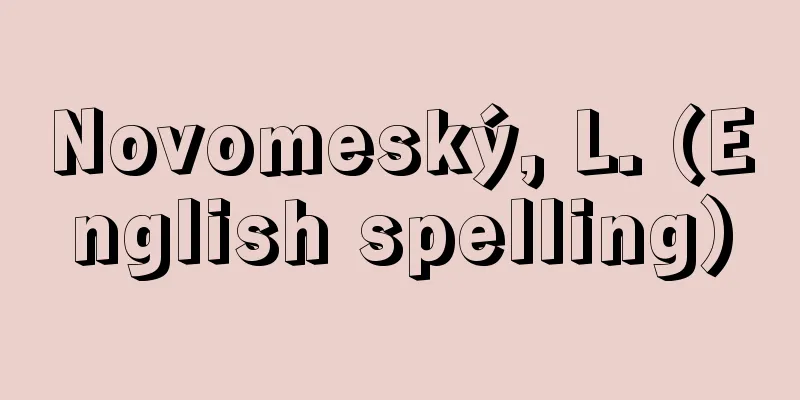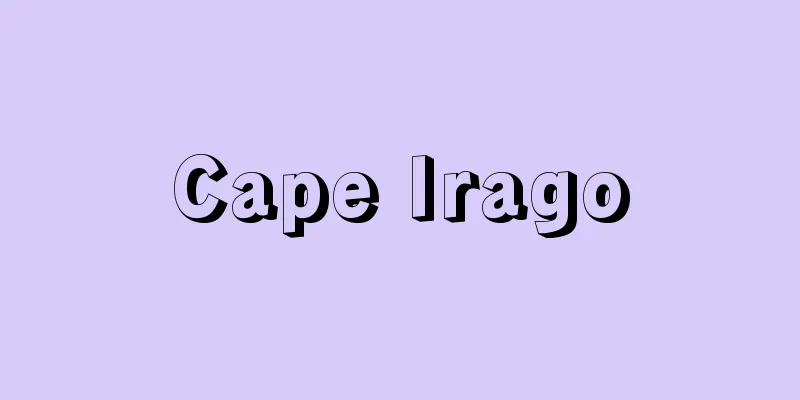Patriarchal family - kafuchouseikazoku
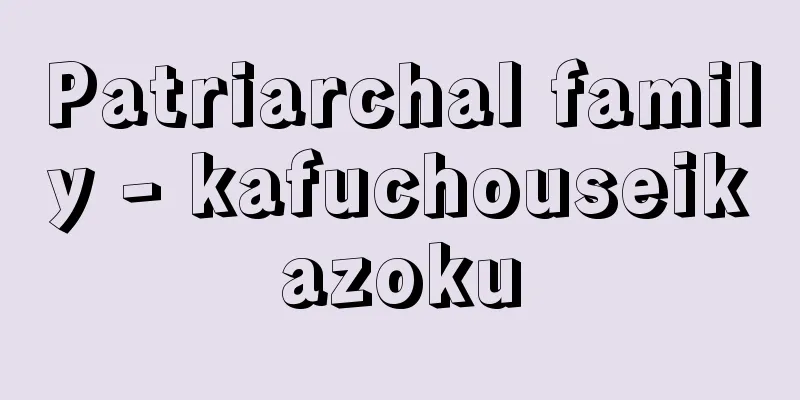
|
...patriarchy can be divided into three categories: (1) Patriarchy as a family type When all order in the family is maintained by the tyrannical power of the eldest male, such a family is called a "patriarchal family." The patriarch (paterfamilias) exercises unlimited and absolute power over not only slaves but also his wife and children, including (in extreme cases) the power of life and death. From [Primitive Communism]...In the second half of the 19th century, the relics of the Slavic and German land-sharing communities were studied, and together with the study of Indian village communities, a primitive tribal society of free and equal people was established at the beginning of human history. However, tribes were considered to be an extension of the family form known from the Old Testament, namely the patriarchal family, which was still fresh in the memory of Europeans, and therefore this primitive communism was considered to involve the subjugation of women and children to the father of the household, and slavery (Engels, Anti-Duhring, 1878). LH Morgan's Ancient Society (1877) showed that the natural community based on blood ties (clan, tribe) was the original social bond of humans, and that the family, which is based on the non-blood relationship of husband and wife, was a secondary relationship, and was in opposition to the original blood-related community, a new relationship that grew with its dissolution, and that the blood-related community was originally matrilineal. *Some explanations of terms that refer to the "patriarchal family" are listed below. Source | Heibonsha World Encyclopedia 2nd Edition | Information |
|
…家父長制は次の三つに分類できる。(1)家族類型としての家父長制 家族におけるいっさいの秩序が,最年長の男性がもつ専制的権力によって保持されている場合,こうした家族は〈家父長制家族patriarchal family〉とよばれる。家父長paterfamiliasは,奴隷ばかりでなく妻や子どもに対しても(極端な場合)生殺与奪を含めて無制限で絶対的な権力をふるう。… 【原始共産制】より…19世紀後半になるとスラブ人,ドイツ人の土地を共有する共同体の〈遺制〉が研究され,インドの村落共同体研究とあいまって,自由で平等な原始的種族団体が人類史のはじめに設定されるようになる。しかし種族は,ヨーロッパ人の記憶にまだ新しくかつ旧約聖書に知られた家族形態すなわち家父長制家族の拡大したものと考えられ,したがってこの原始的共産制は,婦人・子どもの家父への隷属,および奴隷制をともなうものと考えられた(エンゲルス《反デューリング論》1878)。L.H.モーガンの《古代社会》(1877)は,血縁にもとづく自然的共同体(氏族,部族)こそ本源的な人間の社会的結合であり,夫婦という非血縁関係を中核とする家族は,第2次的な関係で,しかも本来の血縁共同体に対立し,その解体にともなって成長してくる新しい関係であること,血縁共同体は本来は母系制であることを示した。… ※「家父長制家族」について言及している用語解説の一部を掲載しています。 出典|株式会社平凡社世界大百科事典 第2版について | 情報 |
<<: Patriarchal patrimonialism
Recommend
Botan shrimp - Botan shrimp (English spelling)
A shrimp belonging to the family Palaemonidae, or...
Family Law - Kazokuho
The total set of laws that regulate the daily rela...
Kazimierz Odnowiciel (English spelling)
…(2) Disintegration, reconstruction, and division...
Fukurozoushi - Fukurozoushi
This is a book on waka poetry from the late Heian...
Nucleoplasm
The protoplasm that makes up the cell nucleus. It ...
Houkigawa
A tributary of the Naka River that flows through ...
Ikaruga [town] - Ikaruga
A town in Ikoma County in the northwest of Nara Pr...
Alchornea liukuiensis (English name) Alchornealiukuiensis
… [Mitsuru Hotta]... *Some of the terminology tha...
Gibbons, S.
…In the film industry, which needed to make a new...
Reverse fault - Gyakudanso (English spelling)
A medium to high-angle fault with a fault plane t...
Kyoto hassun - Kyohassun
…On the other hand, luxurious fire bowls made of ...
Citronellal - citronellal (English spelling)
A chain sesquiterpene aldehyde. Citronellal has o...
Marriage by a husband - Mukoirikon
A marriage in which the couple lives in the bride&...
Ichikawa Sansho
...The name Soshian was given to him by Fujitani ...
Kokubunji [city] - Kokubunji
A city in central Tokyo. It was incorporated as a ...

![Mon [State] (English spelling)](/upload/images/67cd07d0b2513.webp)

